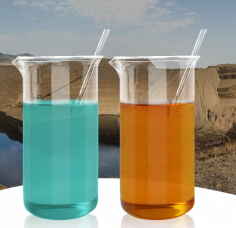To use a reagent in your biochemical experiments, you need to know its pH, concentration, and storage time. For example, the extractive reagent is typically added at the end of your experiment for colorimetric analysis. The extraction reagents are used to extract or precipitate proteins or other biomolecules from the solution. The pH of the extraction reagent is important because it affects how well the reagent will interact with target biomolecules. The concentration of the extractive reagent is also important in that too low or high a concentration can lead to nonspecific effects. Finally, storage time is especially important for the long-term storage of these reagents.
What is an extraction reagent?
An extraction reagent is a chemical that is added to an organic fluid in order to extract chemical compounds from the fluid. This can be done by precipitation or extraction. These reagents have a strongly acidic pH and will cause the proteins in the fluid to precipitate out.
Are you looking for reliable extraction reagent that are cost-effective and provide high-quality results? This article will tell you about the best possible options in the market.
Things to Consider When Choosing a Reagents Manufacturer
When selecting a reagents manufacturer several factors should be considered. These include the company's experience and capability in producing specific reagents, the quality of their products, and customer service. Additionally, it is important to ensure that the manufacturer has a strong track record of delivering on-time and error-free products.
1. What are the different types of reagents?
There are three types of reagents: catalysts, solvents, and reactants. Catalysts are substances that increase the rate of a chemical reaction by providing a specific action or catalyst. Solvents are liquids or gas used to dissolve and remove atoms or molecules from reactants. Reactants are substances undergoing a chemical reaction.
2. What is the importance of quality control?
Quality control is an essential part of any reagents manufacturer. It allows for guaranteeing that all products meet specific standards in terms of purity, potency, and functionality. Without strict quality controls in place, it could be difficult to ensure consistent production and delivery of high-quality products.
Have you ever wondered what complexing agents are and how they work?
A complexing agent is a chemical that helps to remove pollutants from water or air. They work by attaching to and removing substances from the surface of pollutants.
There are several types of reagents you can use in your biochemical experiments. One type is the extractive reagent, which is typically added at the end of your experiment for chromatography. Here's what you need to know about extractive reagents: pH - When adding an extractive reagent, it's important to adjust the pH as necessary so that your solution remains stable and doesn't react with any other chemicals.


